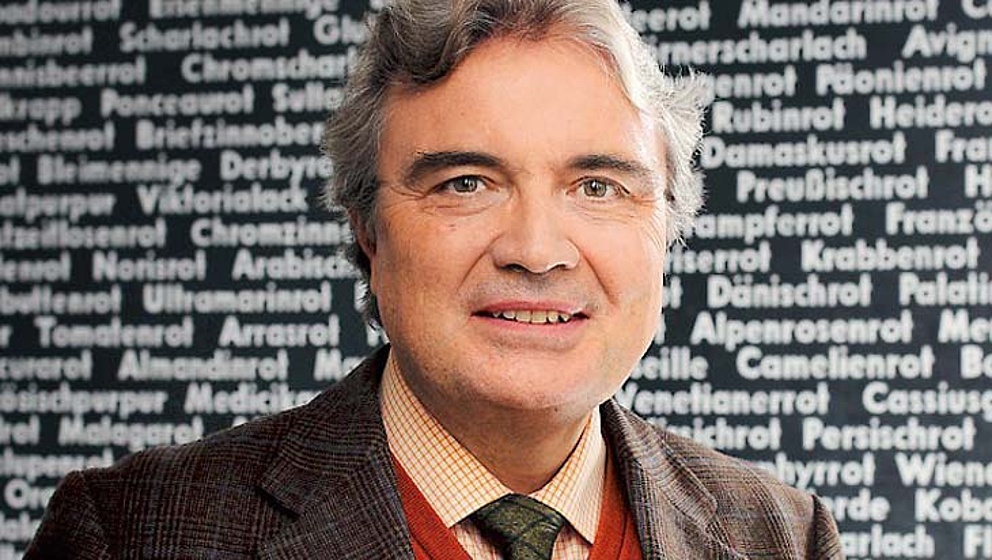Jump to the content
- {{#headlines}}
- {{title}} {{/headlines}}

The Reimar Lust Award Winner Professor Dr Rüdiger Görner has been living and working in London for more than 35 years. He is the author of numerous books including “Streifzüge durch die englische Literatur” (1998), “Dover im Harz. Studien zu britisch-deutschen Kulturbeziehungen” (Dover in the Harz – Studies in Anglo-German Cultural Relations, 2012) or “London, querstadtein. Vieldeutige Liebeserklärungen” (2014). Furthermore, he is also the editor of “Angermion. The Yearbook for Anglo-German Literary Criticism, Intellectual History and Cultural Transfers”, published by de Gruyter. In 2012, Görner was awarded the Deutscher Sprachpreis (German Language Prize) by the Henning Kaufmann Foundation.
The German Network brings together people in different regions of Britain who are interested in the German language as well as the cultures and economies of German-speaking countries. Apart from a comprehensive calendar of events, the Greater London German Network (www.glgn.org.uk), for example, also offers language courses and functions as a jobs board. The German Network is funded by the German Embassy in London.
The Centre for British Studies at Humboldt-Universität zu Berlin and similar institutions like the one at the University of Bamberg focus on interdisciplinary research and teaching. Many other German universities offer courses in British literature and British Studies.

A slim majority for Brexit: Germany held its breath when this news was announced on the morning of 24 June 2016. Right up to the end, people had believed the predictions that promised a sizeable majority for the pro-Europeans in the EU referendum. But then almost 52 per cent of Britons opted to leave – for days, this shocking news dominated the headlines. Europe has still not digested it even now.
Take Rüdiger Görner: he still wakes up some days and simply cannot believe it. The distinguished German literary scholar has lived in England since 1981. He arrived as a student, worked as a researcher, writer, translator and critic, and became a professor of German with Comparative Literature. In 2005, he founded the Centre for Anglo- German Cultural Relations at Queen Mary University of London, which he still heads. And in 2015, his scholarly achievements and services to cultural exchange between the United Kingdom and Germany earned him the Reimar Lüst Award, which is granted jointly by the Humboldt Foundation and the Fritz Thyssen Foundation.
A striking lack of education
To this day, Rüdiger Görner is fascinated by cosmopolitan, liberal Britain with its democratic and cultural tradition. And yet, for years, he has seen cracks appearing in the noble facade. “Above all, there is a striking lack of political education in the population; people are turning their backs on the European idea and foster the dangerous dream of reviving the Empire.” But, in the last resort, it was an irresponsible government that was to blame for Brexit, a government that had wilfully called a referendum the consequences of which it was completely unable to handle. “It’s a political shambles,” says Görner whose expertise is in great demand across Europe these days.
Even though millions of Britons are now calling for another referendum, Rüdiger Görner is convinced that Brexit cannot be reversed. He expects the British government to declare that they are leaving the European Union in the next few months and that negotiations will then begin in earnest. At the same time, agreements will have to be made with all sorts of different countries in order to replace the Brussels provisions with bilateral agreements.
Germany, the heavyweight
“Germany will play a privileged role in this,” Görner asserts. The strength of economic relations between the two countries, Germany’s political weight, the many cultural ties – all of this will tend to reinforce the relationship. This was already becoming clear in the months before Brexit. “It was evident that the standard prejudices about Germans were not being dragged out very often,” the cultural scholar reports. Spiked helmets and Nazi comparisons hardly cropped up in the media at all and the government itself had also refrained from employing barbed rhetoric against one of its most important partners.

This reflects the change in the emotional state between the two nations. For decades, Britons responded to Germans’ unshakeable anglophilia with unflinching Germanophobia. But the 2006 World Cup at the latest marked a departure from rejection mode, according to Rüdiger Görner. “That was when many British fans headed for Germany and discovered a relaxed, cosmopolitan country.” And this has been compounded by the Berlin effect that draws thousands of Britons to the hip German capital every year, not to mention the excellent work done by German cultural institutions in the United Kingdom. “What the Goethe Institute, the German Academic Exchange Service and the cultural department of the German Embassy have achieved in the last few decades is unparalleled and even more important now than ever.”
The conversation must not stop
Culture is the catalyst for everything the future holds for Great Britain and Germany, says Rüdiger Görner, more significant than politics or business. He therefore argues in favour of promoting relevant activities to an even greater extent. “We absolutely have to make sure that the conversation between the cultural mediators does not break down.” In this context, the key platforms are the newly-established German Network on the British side and the Centres for British Studies and courses at German universities as well as the British Council, of course, on the German side (see also information on the right side). Görner thinks that joint projects in fields like comparative media research and migration research would be particularly meaningful. In his opinion, special funding should be made available for this purpose from the European Regional Development Fund.

But what happens when the existing EU funding runs out? After all, at some British research institutions, it accounts for 15 per cent of the annual budget. Will there be a major exodus of researchers, for example to Germany? Whilst there is some evidence of British researchers heading for other English-speaking countries and German colleagues returning home, there is no indication of a mass emigration as yet.
He himself wants to stay in London as long as possible and keep building the big cultural bridge to Germany. He sees great potential in partnerships between cities and regions in the two countries. “There are close networks of relationships in the field of cultural work, but they urgently need to be rejuvenated.” Twinning celebrations such as the 70th anniversaries of prominent city partnerships like Frankfurt-Birmingham in 2016 and Hanover- Bristol in 2017 are a good opportunity. Part of the idea is to study the history of such alliances at his centre, Rüdiger Görner reports. And some town councils are already considering annual, bi-national conferences on certain major topics. Cementing the friendship between Britons and Germans is apparently a matter of great importance to many – in preparation for the day when Brexit becomes reality.
